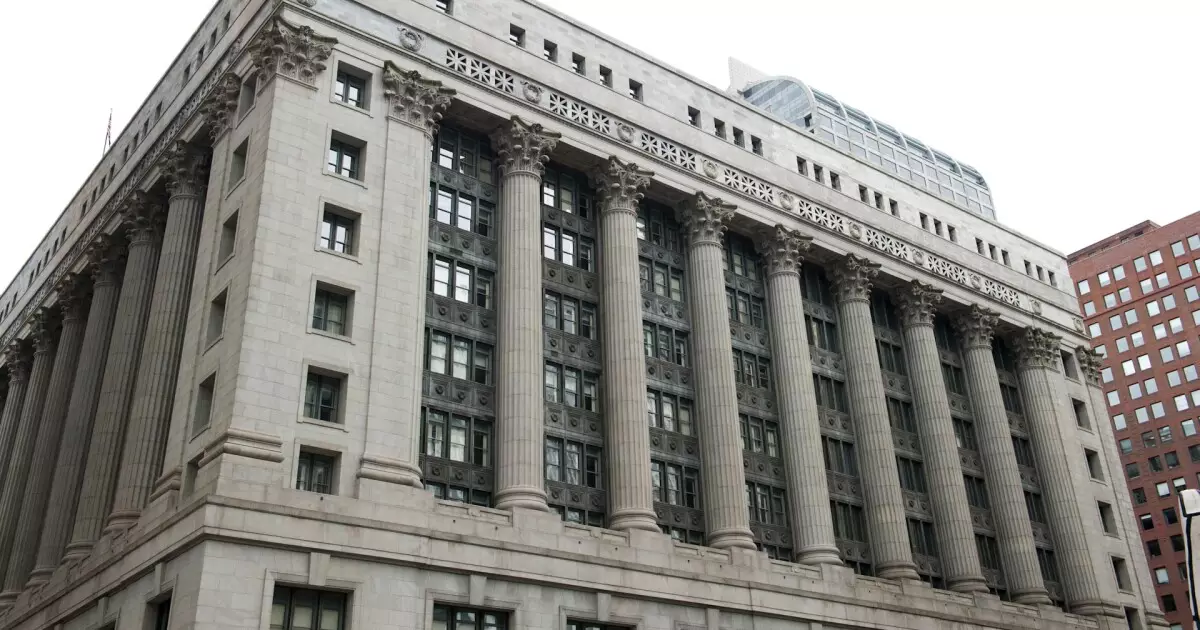In a significant political shake-up, the Chicago City Council recently delivered a resounding rejection of Mayor Brandon Johnson’s proposed fiscal 2025 budget. At the heart of this decision was a contentious proposal for a $300 million property tax increase, aimed at addressing a staggering $982 million budget gap. The Council’s swift and unanimous vote against the tax hike reflects not only a clear stance against Mayor Johnson’s fiscal strategy but also highlights the broader financial struggles that Chicago faces.
The implications of this decision extend beyond immediate budgetary concerns; they raise questions about the future of the city’s financial health. The lack of discussion during the emergency meeting demonstrates the urgency—yet also the contentiousness—surrounding Fiscal Year 2025 budget planning. While this meeting may have appeared rather straightforward, the reverberations of this decision have already been felt in the credit rating market. Just two days prior, the Kroll Bond Rating Agency placed Chicago’s general obligation bond rating on watch for a potential downgrade, underscoring the urgent need for consensus between the Mayor’s office and the City Council.
The recent actions by the Kroll Bond Rating Agency (KBRA) exemplify the precarious position in which Chicago finds itself. Linda Vanderperre, a senior director at KBRA, indicated that the agency would be closely observing the City’s efforts to achieve a balanced budget before the statutory deadline of December 31, 2024. This emphasis on consensus suggests that the credibility of city leadership is at stake, as the ongoing impasse could lead to further financial consequences, particularly concerning the city’s credit status.
Howard Cure, a key figure within municipal bond research at Evercore Wealth Management, noted that the mayor’s proposal represented a significant shift in his earlier commitment to avoid raising property taxes. Yet, the question remains: how much political capital does Johnson possess to influence dissenting Council members? The gravity of the situation has not been lost on Cure, who points out that the looming need for a balanced budget cannot solely hinge on a property tax increase.
Concerns extend beyond local politics, with ratings agencies noting that issues of pension obligations and the reliance on short-term financial fixes may pose a greater threat to the city’s fiscal stability than the debated tax increase itself. The pension crisis is a long-standing matter, plaguing not just Chicago but many municipalities across the U.S. Thus, any reductions in the mayor’s proposed pension payments could spark further negative repercussions.
The Civic Federation of Chicago, a respected fiscal watchdog organization, has already proposed alternative methods to generate revenue without resorting to a property tax increase. These alternatives range from implementing a citywide income tax to increasing fees on services such as garbage collection or expanding the alcohol tax. Such proposals indicate that there are feasible pathways for revenue generation that could alleviate the city’s fiscal woes.
However, many of these suggestions would require changes at the state level, complicating the feasibility of execution. In light of this reality, pressing issues like personnel cuts have emerged as potential avenues for immediate budget relief, as evidenced by the absence of any layoffs in the mayor’s proposed budget. Yet, the ramifications of service reductions must be examined closely, particularly in areas such as public health, where critical vacancies already exist.
Moreover, concerns are surfacing regarding the management of federal pandemic relief funds. As Mayor Johnson’s administration plans to allocate those funds to specific programs, the impending change in federal leadership raises uncertainties about whether these funds will remain accessible.
With a looming $3 billion budget deficit at the state level, Chicago faces an uphill battle in navigating its fiscal landscape. This could translate into challenges for the city as it seeks financial support from state government resources, which are stretched thin. The entangled relationship between city and state finances will become increasingly significant as both entities grapple with balancing their respective budgets.
The political ramifications of these budgeting dilemmas are far-reaching. As the City Council and the Mayor’s Office engage in necessary negotiations, the impacts on essential services, public safety, and the broader socio-economic fabric of the city will be scrutinized. Consequently, how Chicago addresses these oncoming fiscal challenges can serve as a litmus test for future governance in the city.
The Council’s rejection of the property tax increase puts Mayor Johnson’s leadership under scrutiny, paving the way for urgent discussions about viable alternatives. It is imperative for city leaders to come together to navigate the complexities of fiscal policy while considering the long-term implications for Chicago’s residents.

